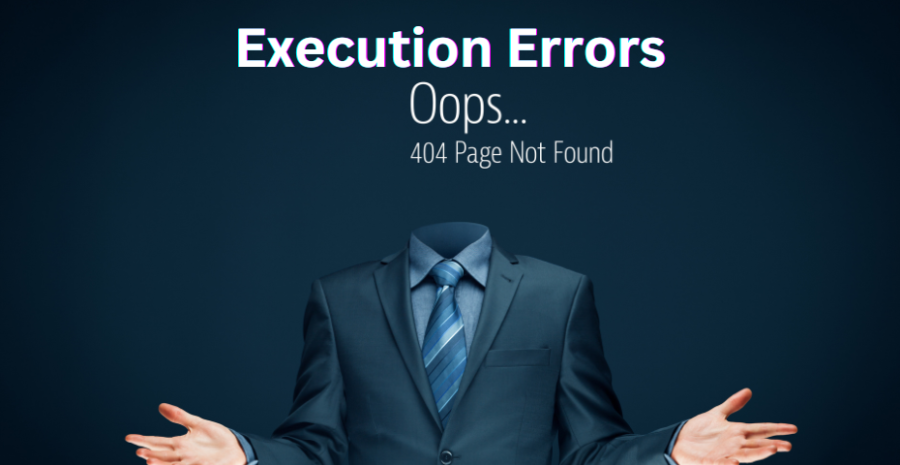
Strategic Shortcomings: Planning Pitfalls Leading to Business Failures.

Introduction:
Strategic shortcomings represent a significant hurdle for entrepreneurs, often resulting in the demise of promising ventures. In the dynamic landscape of entrepreneurship, the ability to craft and execute effective plans is paramount to success. However, many entrepreneurs fall victim to common planning pitfalls that undermine their efforts and jeopardize their business prospects.
From inadequate market research to flawed financial projections, these strategic shortcomings manifest in various forms, leading to misaligned goals, missed opportunities, and ultimately, business failures. In this exploration of planning pitfalls, we delve into the critical aspects of strategic planning that entrepreneurs must navigate to steer their ventures towards success.
By identifying these common pitfalls and understanding their implications, entrepreneurs can equip themselves with the knowledge and tools needed to develop robust strategic plans that mitigate risks, capitalize on opportunities, and drive sustainable growth. Join us as we uncover the strategic shortcomings that often lead to business failures and explore strategies for overcoming these challenges to achieve entrepreneurial success.
1. Market Misalignment:

The Disconnect Between Product and Market Needs. Market misalignment is a pervasive challenge that entrepreneurs encounter, often resulting in significant setbacks and failures. Failure to understand and address the needs, preferences, and behaviors of the target market can lead to the development of products or services that lack relevance or appeal.
This misalignment can stem from inadequate market research, inaccurate assumptions, or a failure to listen to customer feedback. As a consequence, businesses may struggle to attract customers, gain market share, or achieve sustainable growth. Addressing market misalignment requires a deep understanding of the target market, including its demographics, psychographics, and pain points.
By conducting comprehensive market research, engaging with customers, and iteratively refining offerings based on feedback, entrepreneurs can align their businesses more closely with market needs, increase their competitive advantage, and enhance their chances of success in the marketplace.
2. Strategic Shortcomings:

Planning Pitfalls Leading to Business Failures. Strategic shortcomings are the Achilles' heel of many aspiring entrepreneurs, often leading to missed opportunities and business failures. These shortcomings encompass a range of planning pitfalls, including inadequate market analysis, vague objectives, and unrealistic financial projections.
Without a well-defined strategy, businesses may struggle to navigate the complexities of the market landscape, make informed decisions, or allocate resources effectively. Strategic shortcomings can stem from overestimating market demand, underestimating competitive threats, or failing to anticipate shifts in consumer behavior.
Overcoming these challenges requires entrepreneurs to develop comprehensive strategic plans that align with their goals, resources, and capabilities. By addressing strategic shortcomings head-on, entrepreneurs can enhance their decision-making, minimize risks, and position their businesses for sustainable growth and success in the long term.
3. Execution Errors:

Flaws in Bringing Ideas to Fruition. Execution errors represent a formidable obstacle on the path to entrepreneurial success, often stemming from a disconnect between vision and implementation. Despite meticulous planning, many ventures falter due to poor execution, characterized by delays, miscommunication, and inefficiencies.
These errors may manifest in various forms, including operational missteps, inadequate resource allocation, and ineffective leadership. Without a solid execution plan, businesses may struggle to bring their ideas to fruition, capitalize on opportunities, or meet customer expectations.
Overcoming execution errors requires a combination of effective project management, clear communication, and agile decision-making. By fostering a culture of accountability, collaboration, and continuous improvement, entrepreneurs can mitigate execution errors, optimize processes, and drive successful outcomes for their ventures.
4. Resource constraints:
.png)
Overcoming Challenges in Funding and Talent Acquisition. Resource constraints pose a formidable challenge for entrepreneurs, often impeding the execution of strategic plans and hindering business growth. Limited access to capital, talent, and infrastructure can hamper the development and scaling of innovative ideas, leaving entrepreneurs at a disadvantage in competitive markets.
Without sufficient resources, businesses may struggle to invest in research and development, expand market reach, or withstand economic downturns. Resource constraints can also limit the ability to attract top talent, access cutting-edge technologies, or adapt to evolving market demands.
Overcoming these challenges requires entrepreneurs to adopt a resourceful mindset, exploring alternative funding options, leveraging strategic partnerships, and optimizing resource utilization. By embracing creativity, resilience, and frugality, entrepreneurs can navigate resource constraints, unlock new opportunities, and drive sustainable growth for their ventures.
5. Adaptation Deficits:
.png)
The Inability to Pivot in Response to Changing Circumstances. Adaptation deficits pose a significant challenge for entrepreneurs, especially in today's rapidly evolving business landscape. Failure to adapt to changing market conditions, technological advancements, or consumer preferences can leave businesses vulnerable to obsolescence and stagnation.
Whether due to complacency, resistance to change, or a lack of foresight, adaptation deficits hinder the ability to innovate, pivot, or capitalize on emerging opportunities. Inflexible business models, outdated processes, and rigid organizational structures may impede the agility needed to respond effectively to evolving circumstances.
Overcoming adaptation deficits requires a willingness to embrace change, cultivate a culture of experimentation, and foster a growth mindset among team members. By staying attuned to market trends, soliciting feedback from customers, and continuously refining strategies, entrepreneurs can enhance their adaptability, resilience, and long-term viability in the dynamic business landscape.
6. Competitive Pressures:
.png)
Navigating the Landscape of Rivalry and Differentiation. Competitive pressures exert a profound influence on entrepreneurs, shaping strategies and driving innovation in the quest for market dominance. In saturated markets, businesses must contend with fierce competition, vying for customer attention, loyalty, and market share.
Failure to differentiate products, services, or brand offerings can leave businesses vulnerable to commoditization and price wars. Additionally, emerging competitors, disruptive technologies, and shifting consumer preferences introduce new dynamics that demand strategic agility and adaptability.
To thrive amidst competitive pressures, entrepreneurs must embrace innovation, foster a culture of continuous improvement, and identify unique value propositions that resonate with target audiences. By understanding market dynamics, monitoring competitor strategies, and anticipating industry trends, entrepreneurs can navigate competitive pressures, capitalize on opportunities, and sustain competitive advantage in dynamic markets.
7. Entrepreneurial Burnout:
.png)
Recognizing the Toll of Stress and Overwork. Entrepreneurial burnout is a pervasive challenge that afflicts many ambitious individuals striving to build successful ventures. The relentless pursuit of entrepreneurial endeavors often entails long hours, intense pressure, and a constant juggling of responsibilities. Over time, this can lead to exhaustion, stress, and a depletion of mental and emotional resources.
Burnout manifests in various forms, including decreased productivity, feelings of cynicism, and a diminished sense of accomplishment. Left unchecked, burnout can have detrimental effects on both personal well-being and business performance. To mitigate the risk of burnout, entrepreneurs must prioritize self-care, set boundaries, and cultivate a healthy work-life balance.
Seeking support from mentors, peers, or mental health professionals can provide valuable guidance and perspective. By recognizing the signs of burnout and implementing strategies to manage stress effectively, entrepreneurs can sustain their passion, creativity, and resilience in the pursuit of their entrepreneurial aspirations.
8. Resilience Deficiency:
.png)
Building Capacity to Overcome Setbacks and Rejections. Resilience deficiency presents a formidable challenge for entrepreneurs, particularly in the face of adversity and setbacks inherent in the entrepreneurial journey. A lack of resilience can manifest in an inability to bounce back from failures, setbacks, or rejections, leading to feelings of defeat and demotivation.
Entrepreneurs may struggle to maintain focus, confidence, and perseverance when confronted with challenges, hindering their ability to pursue their goals with resilience and determination. Moreover, resilience deficiency may impede problem-solving skills and hinder the ability to adapt to changing circumstances. To overcome resilience deficiency, entrepreneurs must cultivate a growth mindset, embrace failures as learning opportunities, and develop coping mechanisms to navigate adversity effectively.
Seeking support from mentors, peers, and support networks can provide encouragement, guidance, and perspective during challenging times. By fostering resilience, entrepreneurs can weather the storms of entrepreneurship, overcome obstacles, and emerge stronger and more resilient on the path to success.
9. Hubris and Overconfidence:
.png)
Understanding the Pitfalls of Overestimation. Hubris and overconfidence present significant pitfalls for entrepreneurs, often leading to poor decision-making and strategic missteps. Entrepreneurs may succumb to the illusion of invincibility, overestimating their abilities and underestimating risks. This overconfidence can lead to reckless behavior, such as taking on excessive debt or pursuing ventures without proper due diligence.
Moreover, hubris can blind entrepreneurs to feedback, criticism, and warning signs, preventing them from course-correcting or seeking help when needed. As a result, ventures may flounder, opportunities may be missed, and reputations may be tarnished. To combat hubris and overconfidence, entrepreneurs must cultivate humility, self-awareness, and a willingness to listen and learn from others.
Seeking diverse perspectives, soliciting feedback, and embracing failure as a learning opportunity can help temper overconfidence and foster a more grounded approach to entrepreneurship. By recognizing the limitations of their knowledge and abilities, entrepreneurs can make more informed decisions, mitigate risks, and increase their chances of success in the competitive business landscape.
10. External Influences:

Navigating the Impact of Economic, Regulatory, and Environmental Factors. External influences exert a profound impact on entrepreneurs, shaping the context in which they operate and the challenges they face. Economic fluctuations, regulatory changes, and geopolitical instability can disrupt business operations and market dynamics, posing significant hurdles for entrepreneurs.
Moreover, technological advancements, industry trends, and competitive pressures introduce new opportunities and threats that entrepreneurs must navigate adeptly. Unforeseen events, such as natural disasters or global pandemics, can further complicate matters, necessitating swift adaptation and resilience. Entrepreneurs must remain vigilant and proactive in monitoring external influences, anticipating potential impacts, and adjusting their strategies accordingly.
Building flexibility into business plans, diversifying revenue streams, and establishing contingency measures can help mitigate the risks associated with external influences. By staying informed, agile, and responsive to external factors, entrepreneurs can position their ventures for resilience and success in an ever-changing business landscape.
In conclusion:
Strategic shortcomings represent formidable obstacles on the path to entrepreneurial success, often leading to detrimental outcomes for businesses. The planning pitfalls discussed in this exploration, including market misalignment, execution errors, and resource constraints, underscore the importance of strategic foresight and robust planning in navigating the complexities of entrepreneurship.
By recognizing and addressing these strategic shortcomings, entrepreneurs can fortify their ventures against common pitfalls, increase their resilience, and enhance their prospects for success. Whether through comprehensive market research, effective execution strategies, or resourceful problem-solving, entrepreneurs can overcome these challenges and steer their businesses towards sustainable growth and prosperity.
Moreover, by fostering a culture of adaptability, resilience, and continuous improvement, entrepreneurs can navigate external influences, embrace change, and seize opportunities for innovation and growth. In the dynamic and competitive landscape of entrepreneurship, strategic acumen and effective planning are essential tools for achieving long-term viability and success.
Through a commitment to addressing strategic shortcomings and embracing best practices, entrepreneurs can build resilient, adaptive, and thriving businesses that withstand the test of time.
(3).jpg)
About: Andries vanTonder
45 years selfemployed
He is a Serial Entrepreneur, an Enthusiastic supporter of Blockchain Technology and a Cryptocurrency Investor
Find me: Markethive Profile Page | My Twitter Account | My Instagram Acount | and my Facebook Profile.
